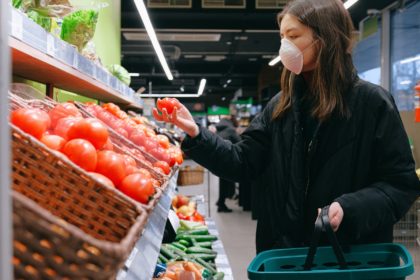
In a matter of days, the novel coronavirus outbreak dramatically changed grocery shopping. Empty grocery store shelves have become a ubiquitous symbol globally of home quarantine.
Sales exploded for pantry staples like dried beans (62.9%), powdered milk (126.3%) and rice (57.5%). But another grocery quarantine must-have item is emerging – fermented food and drink. Sales are up for kombucha (10.1%), natto is selling out in Japan, yogurt is selling out in Europe and pickle and sauerkraut sales in Russia are up 79%. Fermentation brands are reporting some of their biggest sales during the month of March, as much of the nation was forced into self-isolation to prevent the spread of COVID-19.
“For fermented food, it’s an interesting time. We’re an immune boosting type of food, so our sales are skyrocketing. We’ve had the best month we’ve ever had in business,” says Drew Anderson, CEO of Cleveland Kitchen and TFA board member. Cleveland Kitchen makes sauerkraut and fermented dressings and marinades. “It is bittersweet. Obviously, we want this virus to go away. But we’re seeing the fermentation industry as a whole, the one benefit is it’s driving a lot of trial. People say ‘I heard fermented food is supposed to be good for you, I’m cooking more, why not grab a pack of kraut.’”
Though sales are high, brands are changing their operation model. Rather than running two shifts of processing at Cleveland Kitchen, they’re down to one. Employees must take daily temperature readings before work, stop for mandatory handwashing breaks and use new Purell hand sanitizing stations.
“Sales are up overall, but we have had to implement our emergency sanitation protocols to continue production,” says Meg Chamberlain, CEO of Fermenti, LLC. The North Carolina-based brand sells a variety of vegetable ferments, teaches fermenting workshops and hosts annual the annual WNC Fermenting Festival. Their staff is under voluntary home quarantine – which means staff only goes from work to home. “Overall our company is proving resilient and we are hopeful to continue to provide Fermenti to our community.”
Because food production is considered essential business, licensed fermentation companies have not been forced to stop working during the coronavirus outbreak.
Aneta Lundquist, CEO of 221 B.C. Kombucha, has been posting videos to her Instagram stories of the Florida based kombucha processing facility. Lundquist says employees are working overtime to deliver orders.
“Our orders during the global pandemic have spiked. Consumers have gone full blown ‘healthy’ food during this health crisis,” she says. “Now is the time to make a switch from over-processed and denaturalized pseudo foods to real, natural and unprocessed foods that nourish our body, mind and spirit and help building a strong immunity.”
Lundquist adds customers need to “think of kombucha, kimchi, sauerkraut and other fermented fruits and vegetables as microbiome rock stars!…Always choose wildly fermented foods.”
“Remember it is about diversity and the quality of microorganisms, not just quantity. You can only achieve this by fermenting traditionally.”
Keenan Smith, CEO of Goodwolf Kefir in Portland, agrees. He says: “The probiotic and fermented space will increase as people have an increase in health awareness and want a better functioning immune system.” They are home delivering their kefir, and donating a
Brands are getting creative with their marketing, too. Goodwolf Kefir is home delivering kefir to the Portland area and donating a proceed of sales to their local food bank. Cultured South and Golda Kombucha have setup a pick-up fridge at their Atlanta location where customers can prepay for an order online, get a secret code to unlock the fridge and grab fermented food and drinks. Wild Kombucha in Baltimore is offering free, local, “no human touch” home delivery for their 12 pack bottles. 28 Mile Vodka & Distillery in Illinois have converted their distillery to make hand sanitizer that they call “Fool’s Gin.” The CEOs of Miyoko’s Creamery and Lifeway Kefir are both using the brands Instagram accounts to share recipes using their product.
Outside the U.S., though, different government rules are restricting fermentation brands from operating during the global outbreak. In India, Mountain Bee Kombucha has halted operations during a 21-day lockdown.
“There is no question that our business is impacted immensely, one for the fact that we are still quite small-scale which supplies directly to a handful of local grocery stores. Currently those grocery stores have been working at limited capacity and/or temporarily shut,” said founder and head brewer Honey Islam. “Another reason for lesser business in these times is due to the lack of awareness in the Indian market about fermented foods, especially kombucha. We are engaged in educating our customers as well as spreading awareness in the community via workshops, classes, 101 sessions, pop-ups, all these channels are education are currently disrupted which stalled our efforts in bringing kombucha awareness to the masses.”
Mountain Bee Kombucha is focusing on educating through Instagram videos and YouTube tutorials.
